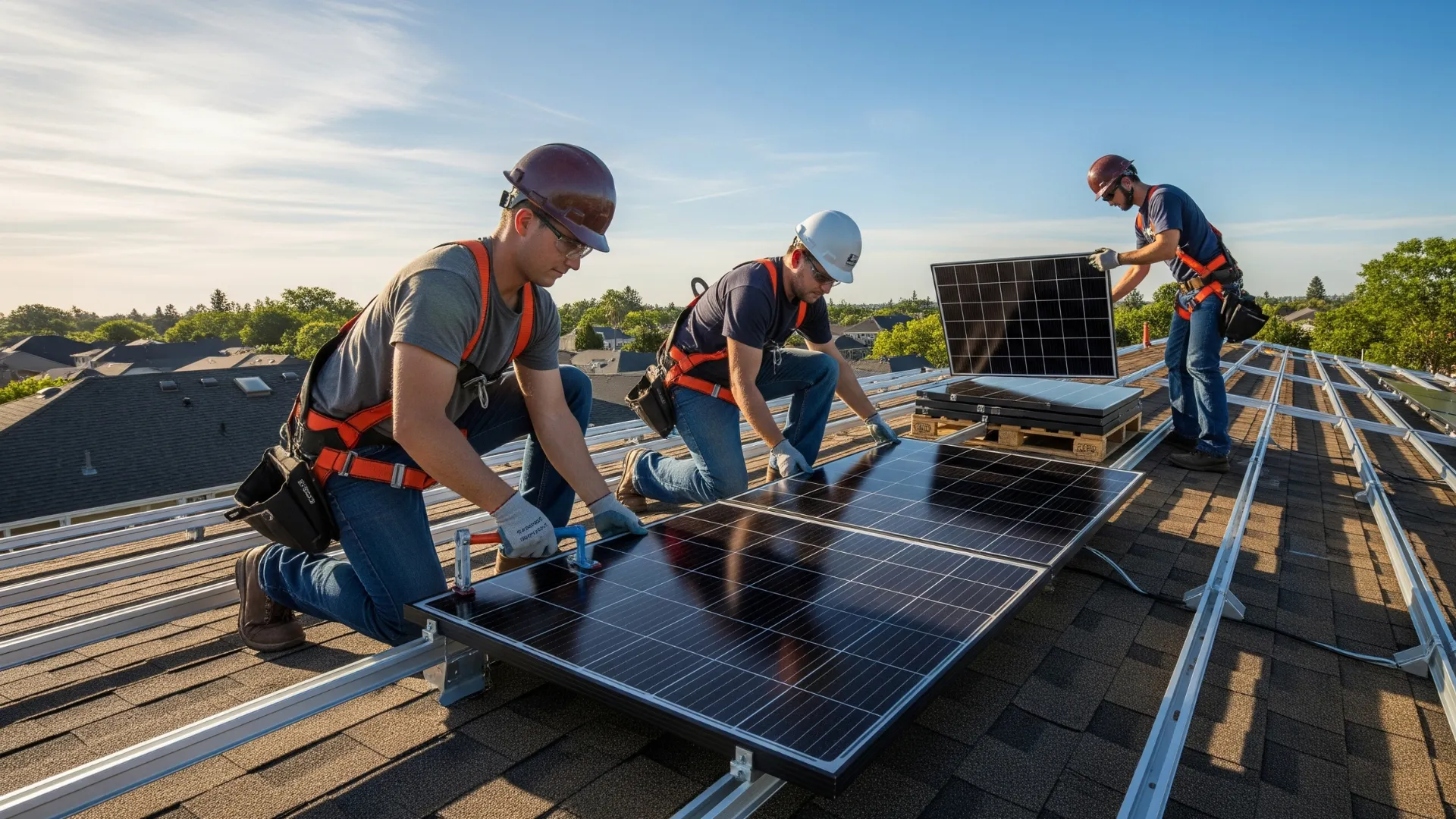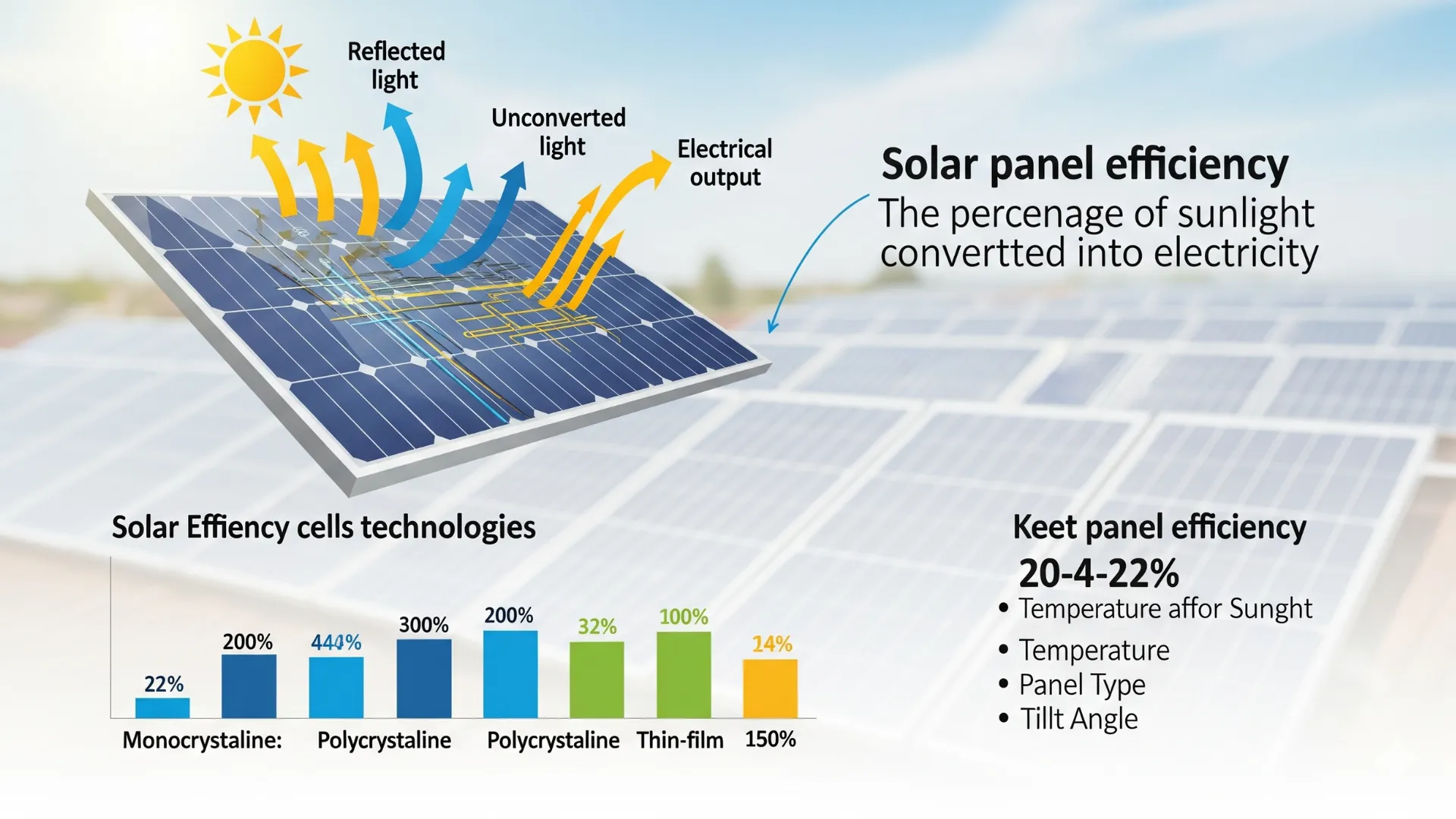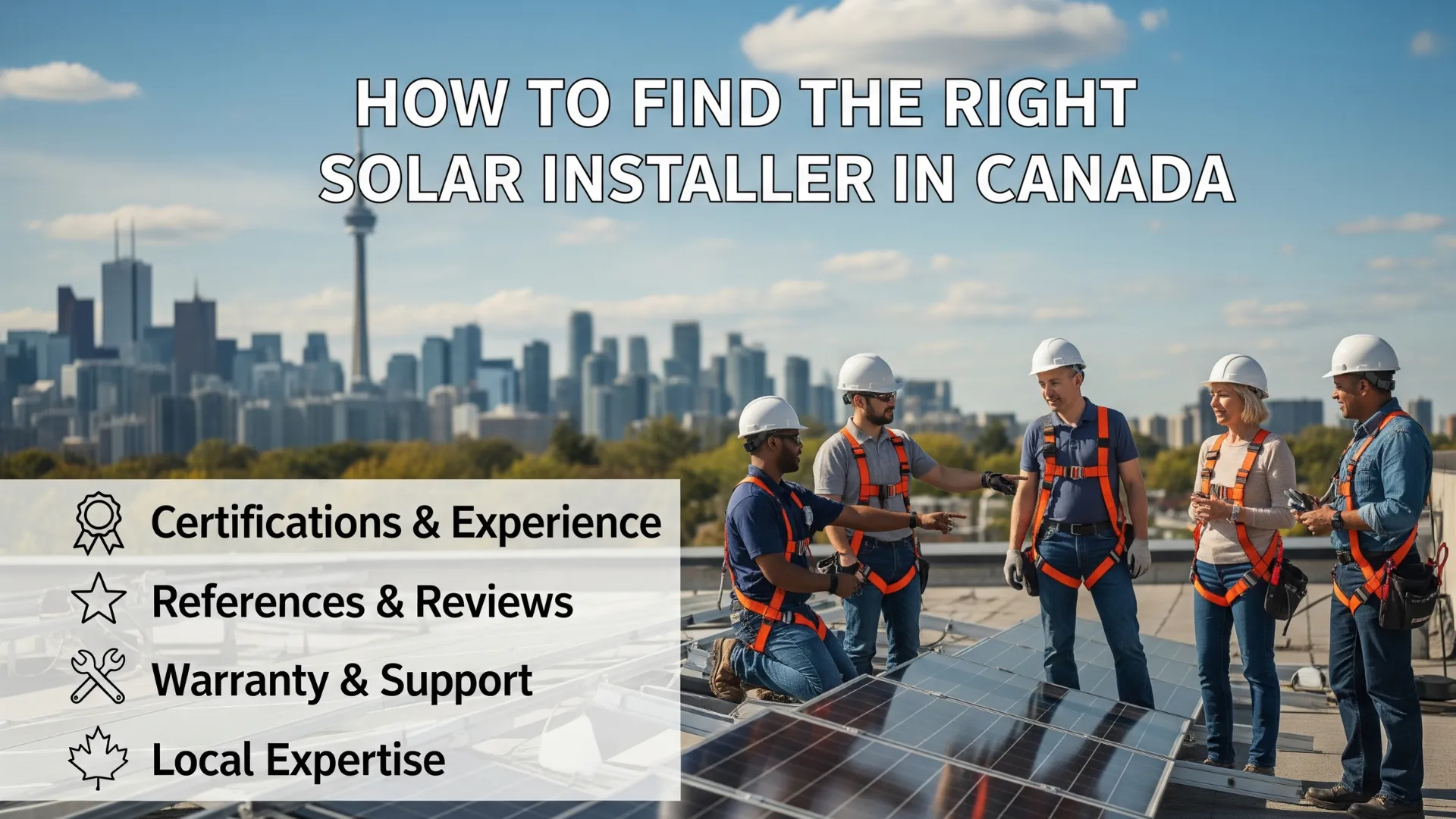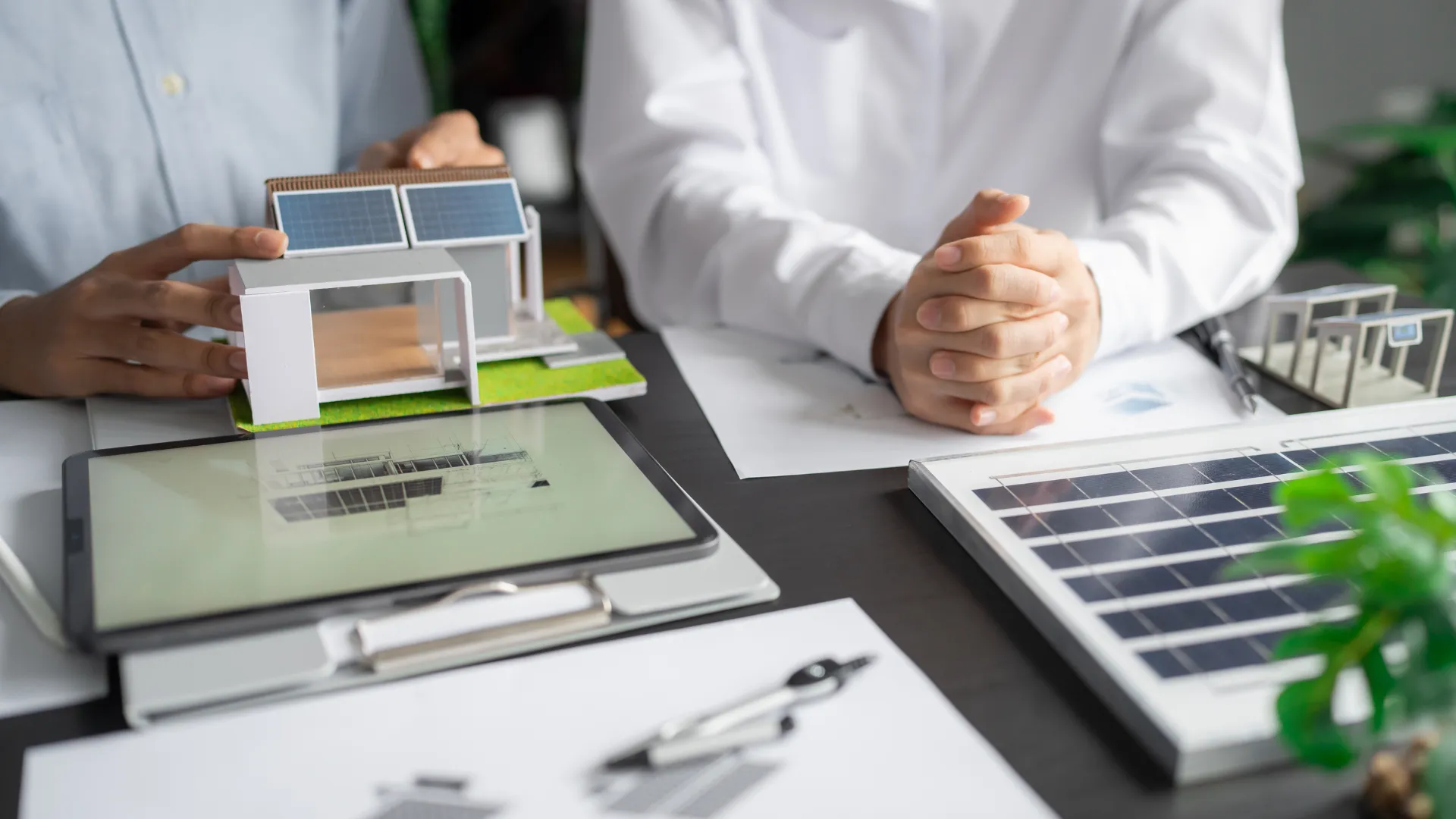5 Best Solar PV Panels in 2025: Which One Should You Choose?
Solar power is catching on fast in Canada, and it’s not hard to see why. With helpful government incentives and more focus on going green, homeowners are starting to seriously consider switching to solar. Solar panels are a smart investment for your home, not just for the environment but also for cutting electricity bills and greater energy control. But with so many options out there, how do you pick the right one? In this guide, we’ll break down the key things to look for when choosing a solar system in Canada and share our top five panel picks for 2025.
Why Solar is an Excellent Choice for Canadian Homes
Switching to solar power is one of the smartest choices a Canadian homeowner can make. The benefits extend far beyond a cleaner environment, offering significant savings on energy bills and greater control over your electricity usage.
Financial Benefits for Canadian Homeowners
In Canada, installing solar panels is a smart investment for your wallet. Over time, it can greatly reduce or even eliminate your electricity bills. As the world moves toward clean energy, a home with a modern solar setup can become a highly desirable property, boosting its value.


Environmental Impact & Energy Independence
Canada has enormous renewable energy potential. Using PV panels not only reduces your carbon footprint but also gives you more energy independence. When the grid goes down, a solar-powered home with a battery storage system can keep essential appliances running, ensuring your household stays functional. Wider adoption of solar panels is an important part of Canada’s energy transition.
Canadian Government Incentives and Net Metering Policies
The Canadian federal government offers helpful incentives, making solar installation more affordable than ever. For example, the Canada Greener Homes Grant provides thousands of dollars in rebates for eligible solar PV installations. On top of that, most provinces have net metering policies, which let you send extra power back to the grid in exchange for credits on your electricity bill.
Key Factors When Choosing Solar PV Panels in Canada
Before making a choice, it's crucial to understand some key technical indicators.
Efficiency and Performance for Canadian Climates
Solar panel efficiency directly relates to how much electricity your system can produce from a limited roof area. High-efficiency panels convert more sunlight into power, which is especially helpful on cloudy days or during the short winter daylight hours. Interestingly, Canada's cold climate is actually an advantage for solar panels, as they perform better in low temperatures. This makes them exceptionally effective on clear, chilly winter days.


Durability and Weather Resistance
Canada's extreme weather, from hot summers to harsh winters with heavy snow and hail, really tests a panel’s durability. You need to make sure the panels can withstand heavy snow, hail, and strong winds. A sturdy frame and high-quality glass are essential to endure these conditions.
Warranty and Manufacturer Reputation
High-quality solar panels typically come with long-term product and performance warranties. The product warranty covers material and workmanship defects, while the performance warranty guarantees the panel will maintain a set percentage of its rated output over time.
Cost and Value for Money
When evaluating a solar panel, the initial cost matters, but what really matters is its long-term value. A pricier panel with higher efficiency and a longer warranty can deliver a much better return on investment than a cheaper, lower-performing option.
The Importance of the Installer
Choosing the right solar installation company is just as important as picking the panels themselves. A qualified installer can ensure your system is installed safely and efficiently, and help you with permits and government incentives.
Top 5 Best Solar PV Panels in 2025
In 2025, many options on the market can meet the unique needs of Canadian homeowners. Here are our top five picks for the best solar PV panels.
EcoFlow
EcoFlow has earned a strong reputation in portable power and solar solutions. Their solar panels have a unique design, making them great for camping, RVs, or as a backup power source at home. EcoFlow's solar panels offer excellent conversion efficiency and durability, even in harsh conditions.
The EcoFlow 220W Bifacial Portable Solar Panel is a prime example. Its dual-sided design captures sunlight from both sides, generating up to 25% more energy, which can be particularly advantageous in snowy Canadian environments where light reflects off the ground. Additionally, the panel's robust build, featuring tempered glass and a waterproof and dustproof rating, ensures it can handle heavy rain, strong winds, and even hail.
Canadian Solar
As a global leader with headquarters in Canada, Canadian Solar is a name you can trust. It focuses on large-scale fixed installations. Its HiKu6 CS6.6B-440MS is a popular choice for homeowners, offering up to 440W of power with over 21.5% efficiency.
Longi Solar
Longi Solar, one of the world's largest monocrystalline silicon manufacturers, is known for its innovation and cost-effectiveness. The Hi-MO 5m 54h panel series delivers up to 415W and over 21.3% efficiency, performing well even in low-light conditions, so you still get good output on cloudy days.
Qcells
QCells is another highly regarded manufacturer, known for high-quality components and strict testing standards. The Q.PEAK DUO BLK ML-G10+ is a strong choice for residential rooftops, offering up to 415W and 21.5% efficiency. Its technology is especially useful under partial shading, common on Canadian rooftops.
Maxeon
Maxeon (formerly SunPower) is famous for its highly efficient solar panel technology. The Maxeon Air 330W Flexible Solar Panel is a top performer for mobile setups. This panel delivers 330W with up to 21.7% efficiency, perfect for RVs and boats where compact, durable, high-performance panels are needed.
| Brand | Product | Power Output | Efficiency | Main Use Case |
|---|---|---|---|---|
| EcoFlow | 220W Bifacial Portable Solar Panel | Up to 220W | Up to 25% | Camping, RVs, home backup |
| Canadian Solar | HiKu6 CS6.6B-440MS | Up to 440W | 21.5% | Residential & commercial rooftops |
| Longi Solar | Hi-MO 5m 54h | Up to 415W | 21.3% | Fixed residential installations |
| Qcells | Q.PEAK DUO BLK ML-G10+ | Up to 415W | Up to 21.5% | Residential rooftops |
| Maxeon | Air 330W Flexible Solar Panel | Up to 330W | Up to 21.7% | RVs, boats, mobile applications |
Product Comparison Table
Enhancing Your Solar System with Battery Storage
A solar system on its own is a powerful tool, but to truly get the most out of it, you need a way to store the energy you generate.
Why Battery Storage Matters
In Canada, daylight is abundant, but solar panels don’t produce power at night or on very cloudy days. To solve this, a battery storage system is essential. It stores the extra power your panels generate during the day so you can use it at night or during an outage, keeping your home running smoothly.
Top Battery Options for Canadian Homes
EcoFlow offers innovative and reliable solutions in this area. Their DELTA Pro series portable power stations work seamlessly with solar panels, providing easy backup power for your home. With a setup like this, you can achieve real energy independence, ensuring your lights, appliances, and essential systems keep running no matter the weather.
How to Find the Right Solar Installer in Canada
Choosing the right installer is key to making sure your solar system works efficiently and safely.

Get Multiple Quotes
Contact at least three reputable installation companies and get detailed quotes. Compare not just prices, but the quality of equipment and warranty coverage.
Check Certifications
Ensure your installer has relevant certifications, such as those from the Canadian Renewable Energy Association (CanREA), which prove their expertise and professionalism.
Review Local Regulations and Incentives
A qualified installer will be familiar with the policies in your province and city, and can guide you through applying for all available grants, rebates, and permits.
Ask for References
Ask potential installers for references from past clients. Talk to them to learn about the quality of service and the long-term performance of their installations.
Frequently Asked Questions (FAQ)
How expensive is a solar panel system in Canada?
A typical home solar system in Canada runs between $15,000 and $35,000 before incentives. The exact price depends on factors like your roof size, energy needs, and equipment choice. For instance, a 6 kW system—about average for a family home—usually comes in around $18,000 to $20,000. With federal programs such as the Canada Greener Homes Grant (up to $5,000) and provincial rebates in Alberta or Nova Scotia, many homeowners see their costs drop to roughly $12,000–$15,000. On top of that, financing options and net-metering programs can spread out the cost and help offset it with bill credits.
What happens to solar panels in Canadian winter conditions?
those crisp, clear winter days can deliver great results. The real issue is snow: a thick layer blocks sunlight. Most panels are installed at a 25°–45° tilt, which helps snow slide off on its own. If it doesn’t, you can clear it with a soft snow brush (never sharp tools, since they can scratch the glass). On average, Canadian homeowners report only a 5–10% annual production loss due to snow. Plus, net-metering makes up for it; you’ll usually overproduce in summer, building credits to cover the slower winter months.
Do solar flares affect residential solar panels or cause blackouts?
Solar flares don’t directly harm your panels or inverters. They’re built to handle normal fluctuations in sunlight. What flares do affect is Earth’s magnetic field and satellites, which can sometimes disrupt GPS or radio signals. In very rare cases, a massive solar storm could impact the power grid itself—but that’s a utility-level issue, not something that damages panels on your roof. If you pair your system with a battery, like EcoFlow’s Power Kits or DELTA Pro Portable Power Station, you’ll still have backup power during any blackout—regardless of solar activity
Can solar panels power home appliances directly?
Not on their own. Solar panels generate direct current (DC), while your appliances run on alternating current (AC). That’s why every solar setup needs an inverter; it converts DC into AC so you can safely use it at home. For example:
Grid-tied system: Panels send DC to an inverter, which powers your home and lowers your utility bill.
Portable system (like EcoFlow panels + portable power station): Panels charge the battery with DC, then the inverter turns it into AC, letting you run fridges, laptops, or even power tools.
Think of it this way: panels collect the raw energy, but it’s the inverter and battery that make it usable in everyday life.


Conclusion
Choosing the right solar panels is a decision worth taking seriously. From understanding which PV solar panels are best, to evaluating efficiency, durability, and cost, and finally selecting the right installer, every step matters. With Canada’s strong support for clean energy, there’s never been a better time to switch to solar power.